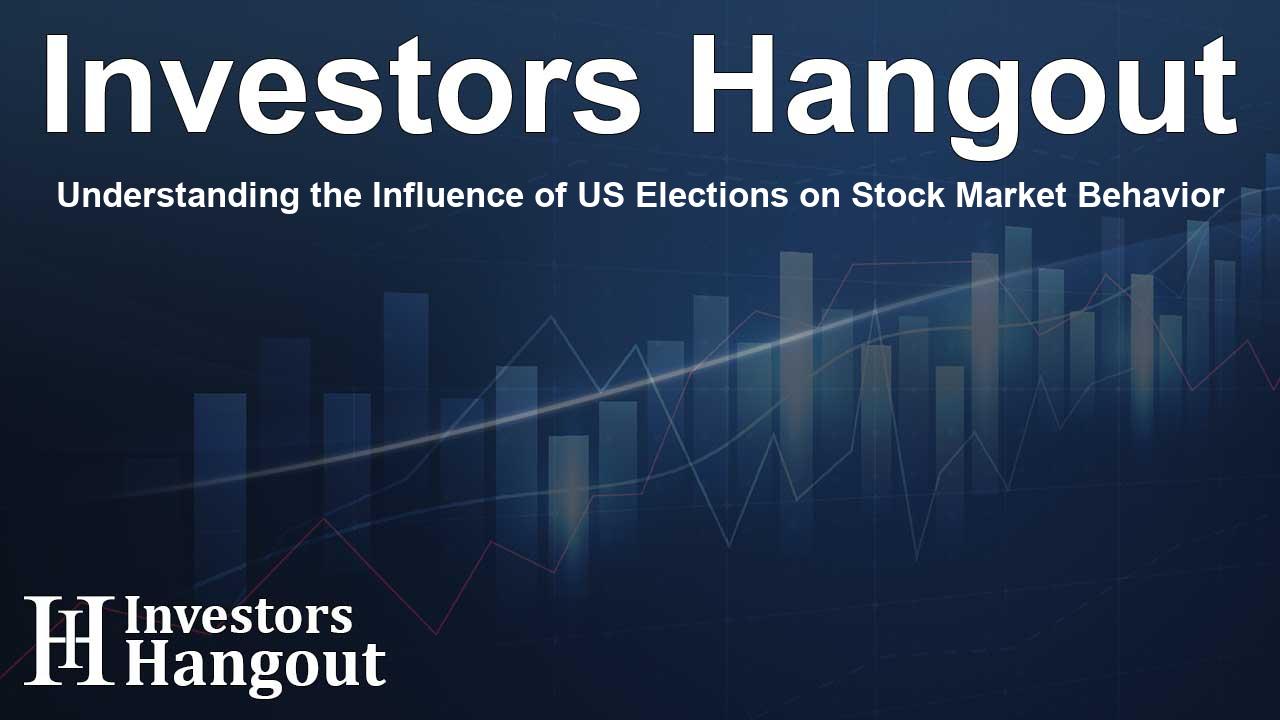Understanding the Influence of US Elections on Stock Market Behavior

How Elections Impact the Stock Market
Examining the connection between US elections and the stock market reveals a consistent pattern: broad market indices like the S&P 500 generally show an upward trend, regardless of who occupies the presidency. This trend has been reliably observed over the years, remaining steady irrespective of political party affiliation.
Since 1961, the S&P 500 has demonstrated a tendency to produce positive returns throughout various presidential terms. The only notable exceptions in more than sixty years were during the presidencies of Richard Nixon and George W. Bush. This suggests that outside influences tend to play a larger role in market performance than the individual in the Oval Office.
Understanding Market Performance in Historical Context
It’s important to understand that while many investors may feel compelled to make significant adjustments to their portfolios based on their political sentiments towards the President, the overarching economic dynamics generally remain unchanged. Millions of Americans, along with billions around the world, continue their daily jobs, fostering innovation and contributing to the profitability of the large corporations that make up the stock market.
Furthermore, analysts have suggested a theory called the 4-year Presidential Cycle. This theory posits that stock market returns are typically weaker during the first half of a President's term. In contrast, the latter part of the term usually shows stronger returns. This shift occurs because newly elected Presidents often concentrate on fulfilling campaign promises related to social priorities in the beginning, before shifting their focus to economic growth as they aim for re-election.
The Effect of Congressional Control on Financial Outcomes
Additionally, which political party controls Congress significantly affects market performance. Historically, the S&P 500 tends to achieve its highest annualized returns when there’s a divided Congress—where one party controls the House of Representatives and the other leads the Senate. This situation often results in a positive market reaction, indicating that a balance of power can promote more effective governance.
On the other hand, periods when Democrats hold majorities in both legislative chambers have shown lower average returns for the S&P 500. Nevertheless, it's worth noting that positive market results occur irrespective of the dominant political party.
How Immediate Factors Matter
While historical patterns offer valuable insights into stock market behavior, immediate factors—like policy shifts, geopolitical events, and market valuations—often exert a stronger influence on market performance. Investors would do well to pay close attention to these factors, as they can profoundly steer market trends, sometimes even more than the political landscape.
Current Market Dynamics
As we delve into the intricacies of the stock market in the context of US elections, it's crucial to keep in mind that past performance doesn't guarantee future outcomes. Ongoing analysis of market conditions is essential; political environments, policy shifts, and other external influences continue to shape market trends. Staying updated with current data and investing with a well-informed approach will likely yield better results than simply reacting to political developments.
Frequently Asked Questions
1. How do elections affect stock market performance?
Generally, stock markets show a trend of increasing, independent of the sitting president, due to broader economic influences.
2. What is the 4-year Presidential Cycle?
This cycle suggests that stock returns are typically weaker in the first half of a presidential term, with a stronger performance commonly observed in the later years.
3. Does Congress's political control influence market returns?
Yes, historically, the best market returns have been seen under divided Congresses, where power is shared, leading to more sensible governance.
4. What factors drive stock market performance beyond elections?
Factors such as immediate policy changes, global economic conditions, and prevailing market valuations significantly impact stock performance apart from political events.
5. Are historical trends reliable indicators for future market performance?
While historical trends can offer insights, they don't guarantee future results; continuous analysis of current data and market conditions is vital.
About The Author
Contact Lucas Young privately here. Or send an email with ATTN: Lucas Young as the subject to contact@investorshangout.com.
About Investors Hangout
Investors Hangout is a leading online stock forum for financial discussion and learning, offering a wide range of free tools and resources. It draws in traders of all levels, who exchange market knowledge, investigate trading tactics, and keep an eye on industry developments in real time. Featuring financial articles, stock message boards, quotes, charts, company profiles, and live news updates. Through cooperative learning and a wealth of informational resources, it helps users from novices creating their first portfolios to experts honing their techniques. Join Investors Hangout today: https://investorshangout.com/
The content of this article is based on factual, publicly available information and does not represent legal, financial, or investment advice. Investors Hangout does not offer financial advice, and the author is not a licensed financial advisor. Consult a qualified advisor before making any financial or investment decisions based on this article. This article should not be considered advice to purchase, sell, or hold any securities or other investments. If any of the material provided here is inaccurate, please contact us for corrections.
